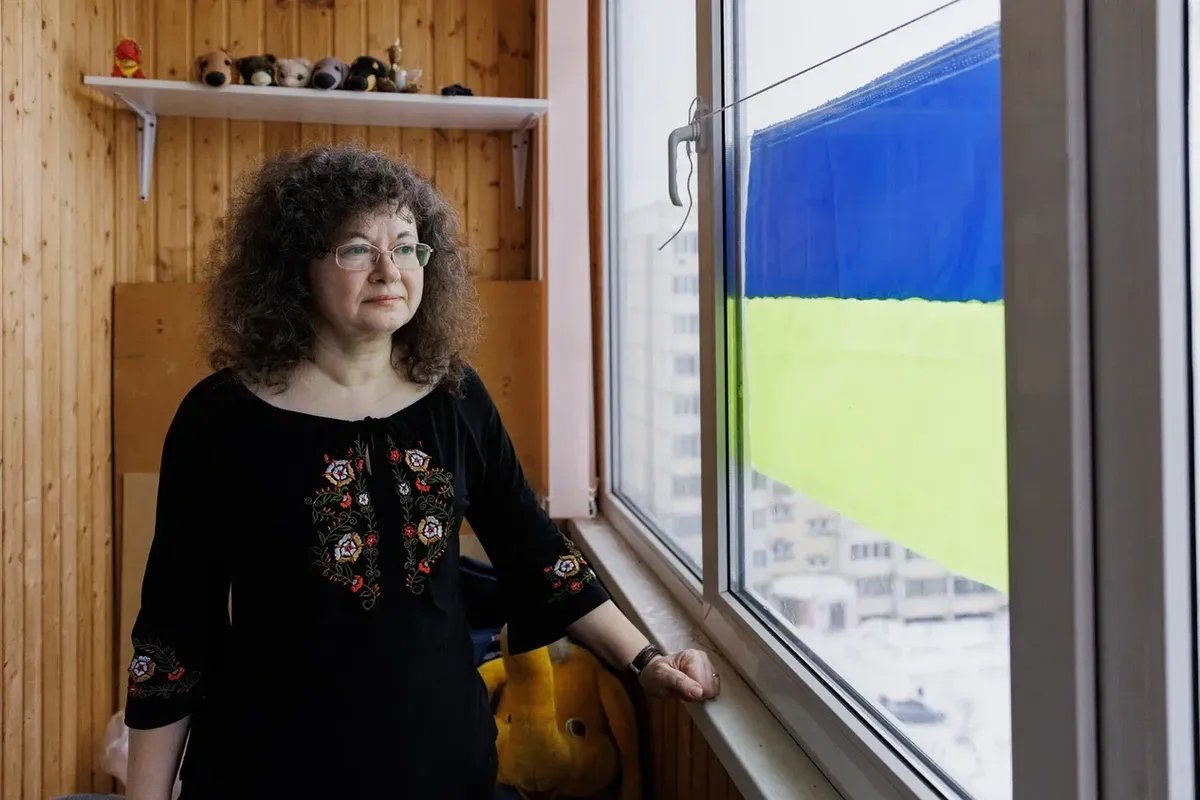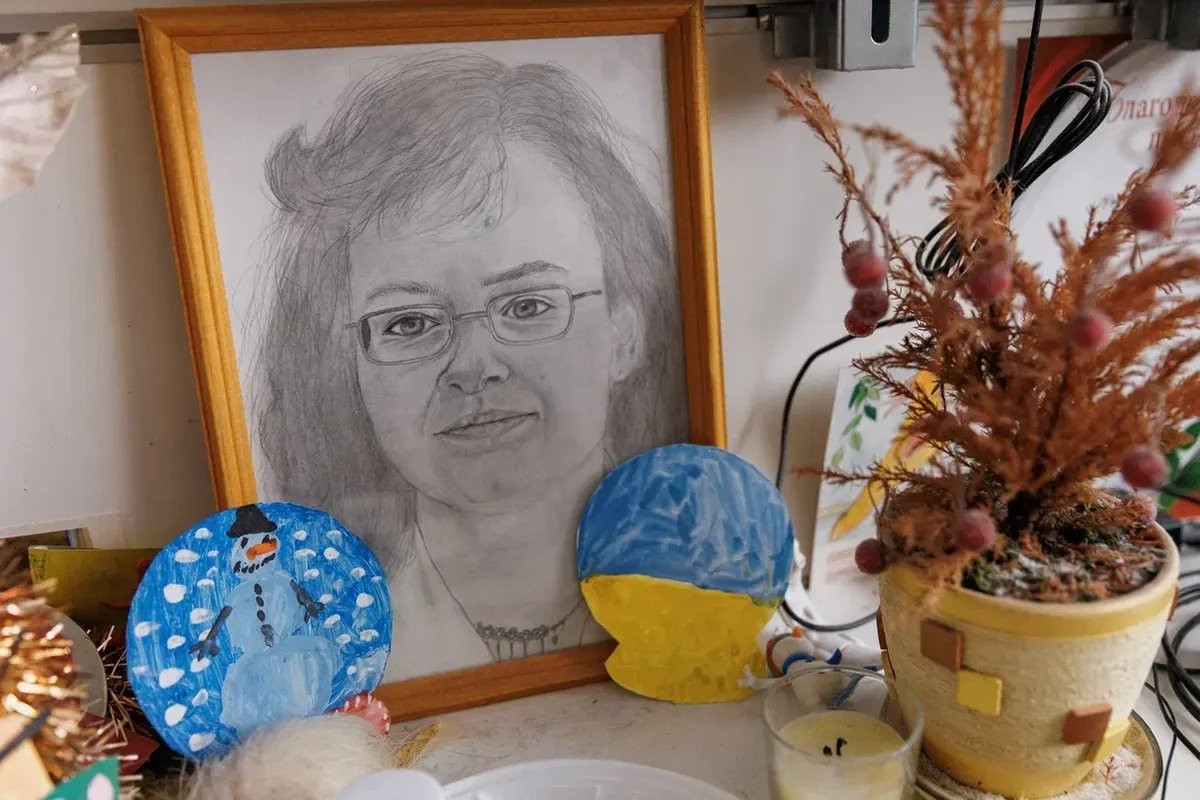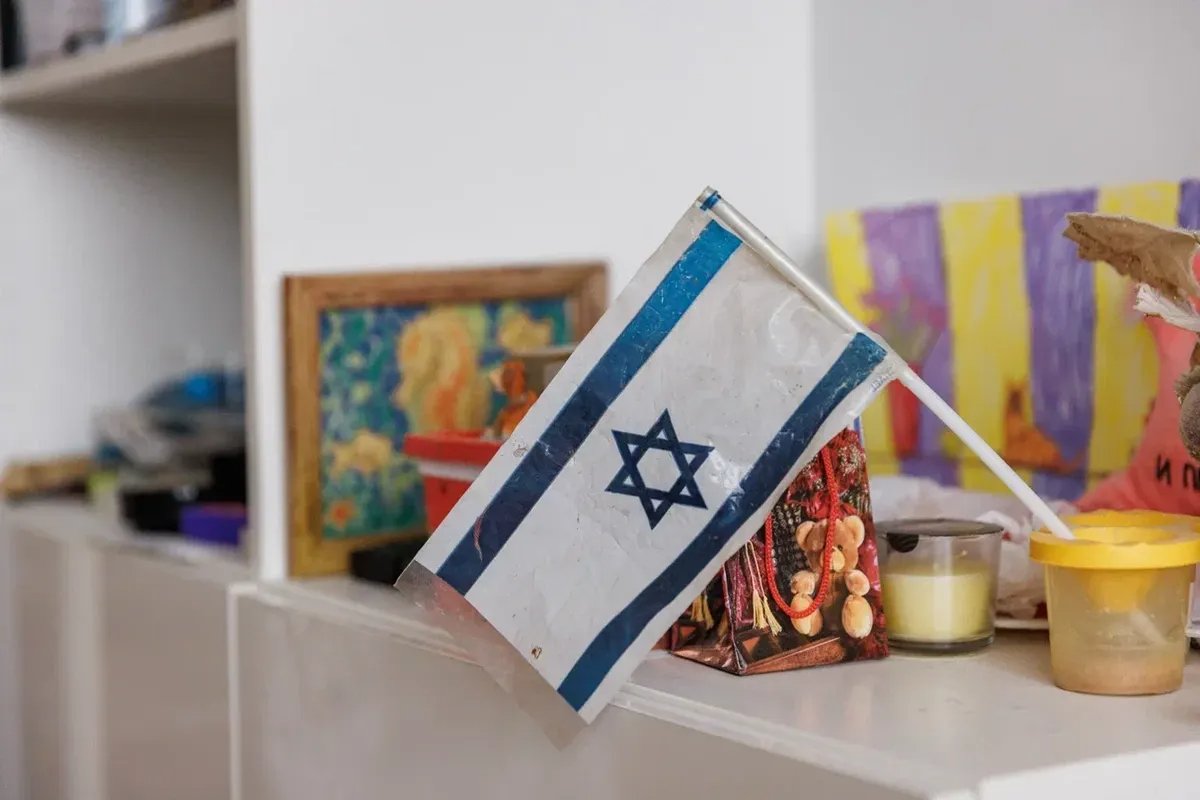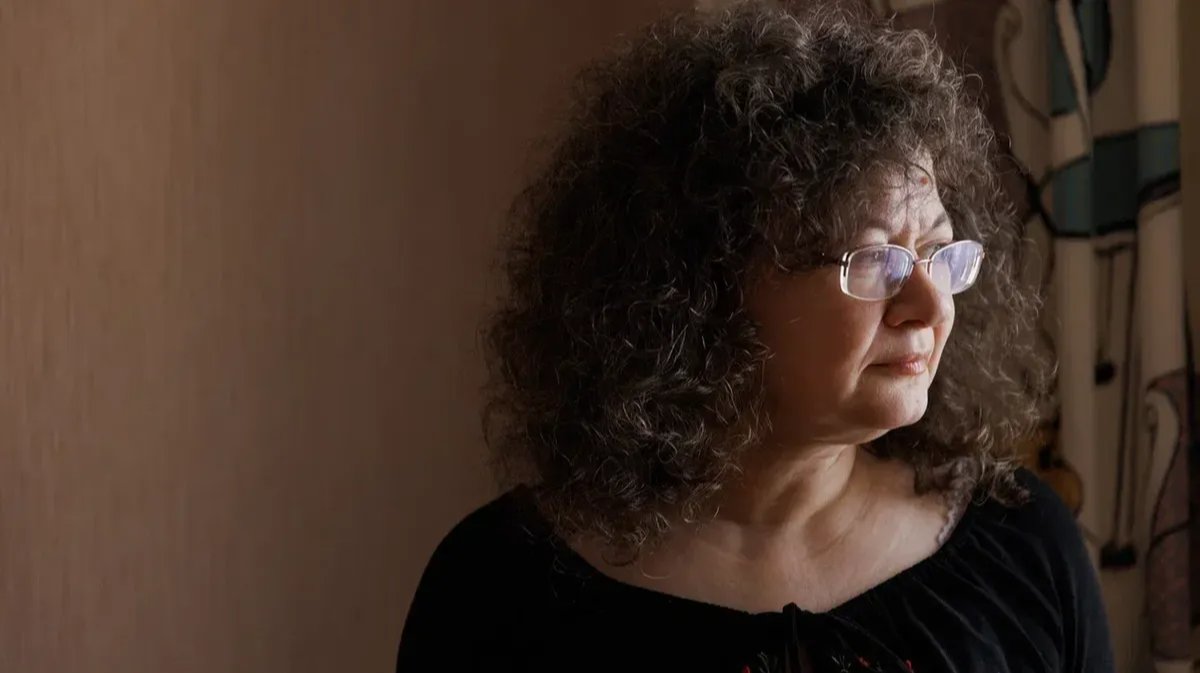Olga Nazarenko, a 48-year-old political activist and teacher from Ivanovo, was rushed to hospital after being found seriously injured in the early hours of 7 October. Despite the efforts of her doctors, she never regained consciousness and died last week after a two-week battle to save her life. The cause of her injuries remains unclear.
“I was told that Olga wanted to hang up a banner for Putin’s birthday and fell out of a tree while doing so,” a fellow Ivanovo activist and friend of Olga’s told Novaya Gazeta Europe. “I don’t know what was on the banner but it certainly wasn’t Happy Birthday.”
According to other friends, “Olga was caught by law enforcement who knew she’d do something to mark the leader’s birthday”. “She was taken to hospital with multiple injuries and died in intensive care,” Ivanovo resident Galina Zimina wrote on Facebook. “Doctors say the injuries she suffered suggested a severe beating and falling from a great height, not from a tree. I think she was being watched as she prepared her latest anti-war protest … and that whoever was monitoring her contributed to her injuries in one way or another.”

Olga Nazarenko in January. Photo: Yelena Georgieva, Novaya Gazeta Europe
One friend of Olga’s says her friends tried to have her transferred to a hospital in Moscow, but that was impossible without the consent of her family who were apparently keen not to attract unnecessary attention to themselves.
“Friends always came to court to support Olga,” her lawyer, Oscar Cherdzhiev wrote on his Telegram channel.
“She was loved and appreciated. Even her opponents respected her. It isn’t an exaggeration to say she sacrificed herself for peace.”
Nazarenko was a defendant in Russia’s first trial for repeat attendance of anti-war rallies. There were several civil proceedings against Nazarenko for protesting and “discrediting the actions of the Russian army”. At one protest Nazarenko had held a sign reading “All but very bad people want to live in peace.” Below it were the words “God save Ukraine” and a Ukrainian flag. Nazarenko posted a photo from the protest on her Telegram channel with a quote from Ukrainian writer, Lina Kostenko: “No matter what anyone says, evil will perish and truth will prevail.”
These two quotes were ruled by the court to have been defamatory and Nazarenko was fined a total of 265,000 rubles (€2,650) and given 400 hours of community service. However, a criminal case was then brought against Nazarenko for her continued opposition to the war. This had been ongoing at the time of Nazarenko’s hospitalisation, but had already led to her removal from the medical academy where she had taught for 22 years.
As Nazarenko told Novaya Gazeta Europe herself when she was featured in a story about grass roots anti-war protest in the Russian regions earlier this year, her colleagues at the academy didn’t see what her peaceful protests had to do with her work, but they complied with the demands of the criminal investigator all the same.

The home of Olga Nazarenko in January. Photo: Yelena Georgieva, Novaya Gazeta Europe
“My grandparents were from Ukraine,” Olga Nazarenko told our correspondent. “Everything happening now is so painful for me. After the annexation of Crimea and the outbreak of hostilities in eastern Ukraine, the war gradually settled into a stalemate and there weren’t many civilian casualties. I already thought it was approaching a peaceful resolution. Of course it couldn’t end while Putin and his allies are in power, but I definitely wasn’t expecting full-scale war.”
The main symbol of her protest against the war became the Ukrainian flag she kept on her balcony and the blue and yellow ribbons she wore on her backpack. The police repeatedly removed both, but she would always replace them.
“My husband says, ‘Why do you keep pushing it? They’ll put you in jail. What are you thinking?’ He has a different view of Russian politics. But my children sympathise with me. Their phones were seized when the house was searched and they still haven’t been returned. They seized the computer, my child’s laptop, a tablet, and all of our phones.”

The home of Olga Nazarenko in January. Photo: Yelena Georgieva, Novaya Gazeta Europe
When told by the police of the charges being brought against her they stressed that this was being done “to maintain peace and security in accordance with international law”, to which Nazarenko laughed out loud – something, she said, the officers didn’t appreciate, adding that they seemed to find her lack of fear of people in uniform antagonising.
“I’m not afraid,” Nazarenko told our correspondent earlier this year.
“What’s happening in Russia and Ukraine now is much worse than what’s happening to me. I can’t stay silent, or I wouldn’t be able to look at myself in the mirror. I was a child during perestroika.
People started talking about Stalinist repression. I was about 15 at the time and wondered why no-one had spoken out. I asked my grandfather and it made him very uncomfortable. I don’t want my grandchildren to ask me the same question years from now. Or rather, I want to be sure I can answer.”
P.S.
Olga is survived by her husband and her two children.
Join us in rebuilding Novaya Gazeta Europe
The Russian government has banned independent media. We were forced to leave our country in order to keep doing our job, telling our readers about what is going on Russia, Ukraine and Europe.
We will continue fighting against warfare and dictatorship. We believe that freedom of speech is the most efficient antidote against tyranny. Support us financially to help us fight for peace and freedom.
By clicking the Support button, you agree to the processing of your personal data.
To cancel a regular donation, please write to [email protected]

